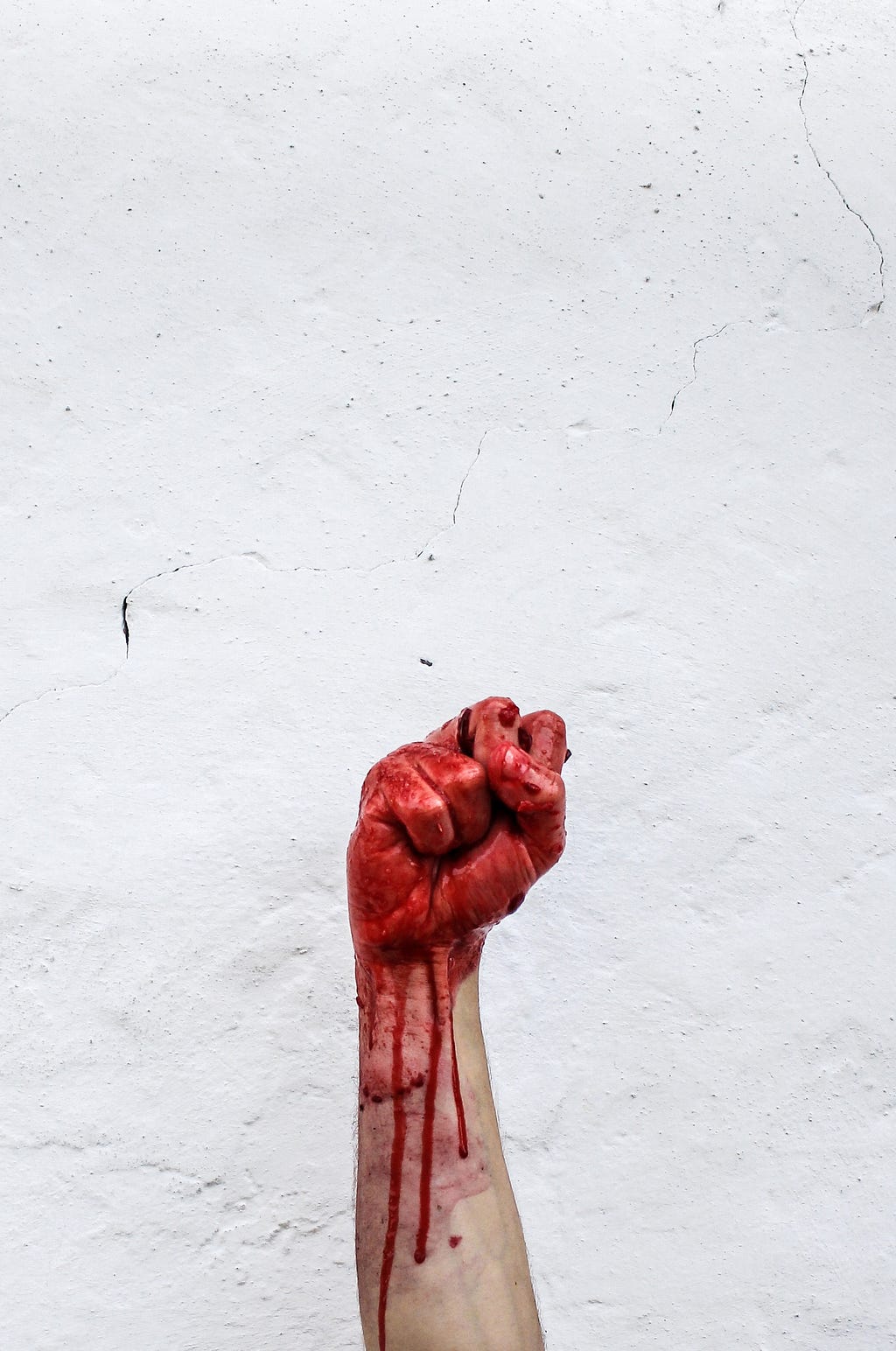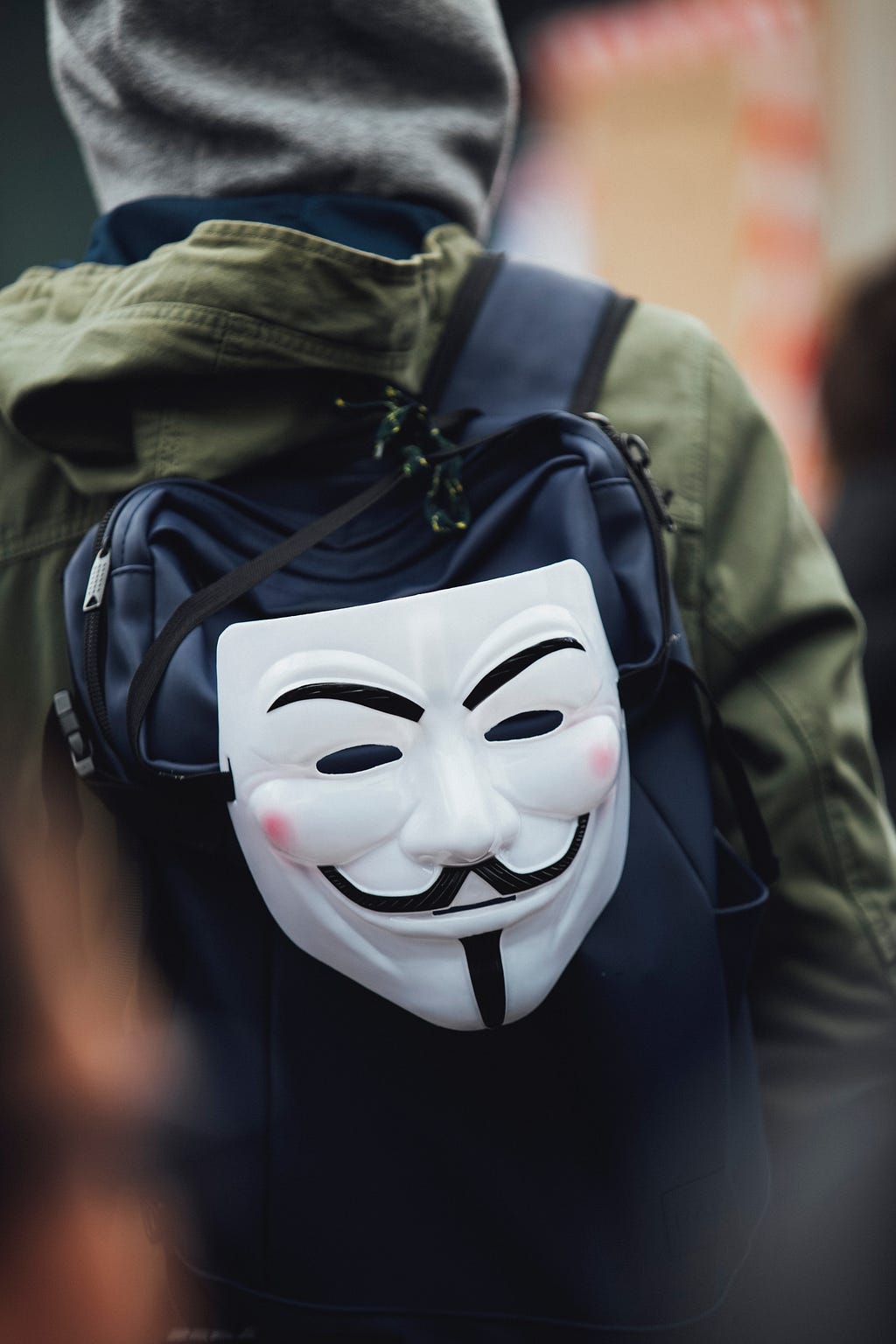Latest news about Bitcoin and all cryptocurrencies. Your daily crypto news habit.

As a child, few can claim to have escaped essay writing on an all-too-familiar topic: “technology: a bane or a boon?” I always tried to wriggle my way out of this cliché task, my head bubbling with tales of adventure and heroism. To an adolescent glued to his superhero comics, real technology paled beside the fantastical machines and gadgets I wanted to have. But now, as I have grown up, I realize the true implication of my childhood essay assignment much more acutely. Technology is as ever-changing as it is ubiquitous today, and is capable of helping and harming in equal measure. In the real world, tales of adventure and heroism are often underlined by bloodshed and suffering, and undone by governments trying to suppress their own people. Today, powerful oppressors are armed with advanced technology: to spy, to suppress, to kill. The same technology can stand to benefit the oppressed, looking to piece back a life that has fallen into disarray.
Even as we continue to curl up in our comfortable cocoons, wars rage on in various parts of the world. We may be oblivious to the shrieks of lost children in Syria, we may not know how some of their parents are trying to hunt down a semblance of sense in the piles of rubble. Yet, as the revolutionaries and refugees around the world try to piece together their tattered socioeconomic fabric, it is technology that can come to their aid. Considering our privilege in escaping such a tumultuous fate, the responsibility falls on us to debate and devise how technology can enable and advantage these people. Blockchain is one such technology that can have a massive social impact, especially in war-torn areas where revolutionaries attempt to make the best of their lives. Will the next revolution be put on the blockchain? I definitely think so.
Nowadays we are seeing significant applications of blockchain and cryptocurrencies in areas ravaged by dissent and for good reason. Blockchain, with its theoretically immutable record-keeping that can easily outlive centralized entities because it is decentralized. It can help protect the identity, financial data and medical records of the displaced populace. Cryptocurrencies, for their part, can provide these people with a means to be financially independent without having to rely on a government they find hard to trust.
Blockchain is making it easier to conduct crowdfunding campaigns and reach out to more people without depending upon centralized modes of communication. Now, how does that work?
A few instances could easily help us understand the model being adopted across these war-torn areas to implement blockchain technology. A prime example of this is the “Building Blocks” project undertaken by the World Food Programme (WFP). Run across refugee camps in Jordan, this programme makes use of blockchain as the source of basic currency for refugees. Instead of having to use cash and other forms of centralized fiat, these people can now pay in grocery stores and more based on their biometric data (iris scanning) that is linked to WFP accounts and vouchers.
This stellar application of the technology has reportedly helped cut down on third party costs and fees by as much as 98% and represents a greater potential for identification and database linking in the future. In fact Robert Opp, who is the Director of Innovation and Change Management with the WFP, rightly pointed out how this technology can be used and adopted for humanitarian causes. He reportedly said:
“The exciting part is that these innovations, often developed for more commercially attractive markets, have such potential to improve the lives of those who are furthest behind.”
Cryptocurrencies, built on the underlying blockchain technology, are also being used to salvage the economic realities of these ravaged states.
The example that comes to my mind in this regard is that of Rojova, also called the Democratic Federation of Syria. In 2018 it was reported that this region, struggling under the pressure of economic sanctions from Turkey, Iran, Syria and Iraq, was trying to devise a cryptocurrency to bypass issues of central Syrian control. As per latest coverage, efforts are still underway in that regard and the people of Rojova are depending on who they call “social engineers” (hackers and developers motivated by a specific political ideology) to come up with a suitable cryptocurrency so that local merchants can be encouraged to use that instead of the Syrian Lira.
The proliferation of smartphones have definitely helped give credence to this idea that cryptocurrencies can work well in this region. In addition, these social engineers have also started considering the use of less sophisticated technology like radio for transmitting crypto-like currency forms.
Additionally, they have mulled over the suggestion of using paper currency pegged to some form of cryptocurrency. While the correct implementation of these plans will take some time, as a part of the region’s overall rebuilding process, we can definitely hope for some major benefits coming from the use of crypto.
We have also seen a major use case in terms of using crypto and blockchain for donations, in a different region of conflict. The Israel Palestine issue has spawned a whole different theater of war and suffering in the Middle East, with the Gaza Strip being one of the focal areas of devastation. Hamas, the group that functions as the de-facto political authority of this region, has also resorted to asking for donations over the blockchain via Bitcoins.
After Israeli Prime Minister Benjamin Netanyahu froze millions of dollars in Qatari aid to the Hamas, the organization, which is deemed to be a terrorist outfit by many Western powers; decided to solicit funds in the form of Bitcoins. Of the amount to be received in aid, 15 million dollars were due to Hamas’ civil service officials. Facing attacks from Western and Israeli intelligence, Hamas then decided to adopt more discreet methods of raising Bitcoin to cover its tracks. As they say, one man’s freedom fighter is another man’s terrorist and the same applies to the case of Hamas. For many revolutionaries in Gaza, this group represents faith in the midst of despair and their decision to fall back on a new technology for accumulating funds seems to bring with it a glimmer of hope.
With such precedents behind us, we can be certain that the next set of revolutionaries, no matter where they arise and awake, will have a robust form of technology to fall back on, in the form of blockchain and crypto.
By blurring boundaries, decentralizing access, and facilitating the creation of immutable, distributed records; blockchain can help displaced people hold on to their identity and sense of worth. In this way, it can have a huge socioeconomic impact that facilitates revolutionary aims without corrupting its original essence.
Similarly, cryptocurrencies can also put them forward on the economic and financial front, bypassing the restrictive curtailing that may come from the side of governments. Therefore, for those who say that modern technology is primarily the tool of the privileged, must note these examples, to know and understand how these technologies can serve to uplift those who have fallen behind.
We have seen time and again how major organizations have used modern technology to empower those who have suffered tremendous setbacks in their lives and have been forced to contend with the shifting reality of violence and destruction around themselves.
Now that blockchain has joined in, we can be sure to see more socioeconomic benefits being delivered to these war-ravaged regions.
Will The Next Revolution Be Put on a Blockchain? was originally published in Hacker Noon on Medium, where people are continuing the conversation by highlighting and responding to this story.
Disclaimer
The views and opinions expressed in this article are solely those of the authors and do not reflect the views of Bitcoin Insider. Every investment and trading move involves risk - this is especially true for cryptocurrencies given their volatility. We strongly advise our readers to conduct their own research when making a decision.


